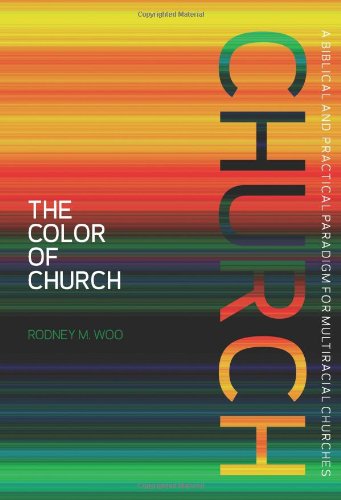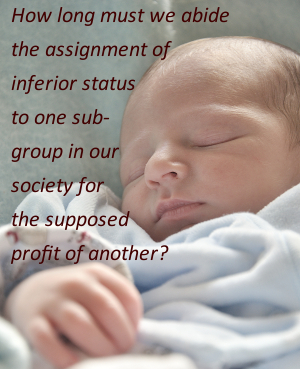Southern Baptists Set to Make History at Annual Meeting Tuesday
Body
Discussion
Book Review - Bloodlines: Race, Cross, and the Christian
[amazon 1433528525 thumbnail]
A few weeks ago, my wife and I went to see the movie “The Help.” I was outraged that human beings were treated with such disdain. I felt like I wanted to go out and march on Selma or something. But, of course, that was back in the 50’s and 60’s long before my birth. I praise the Lord that such wicked segregation does not exist today. We live in a much more enlightened time today. So, the very next day I went off to worship at my overwhelmingly white church followed by a week of work at my overwhelming white Christian school.
I couldn’t help but think of this experience when I finished reading the book Bloodlines: Race, Cross, and the Christian by John Piper. Of course, I am always eager to read anything by Piper. I knew it would be about race, and I was ok with that. After all, I am against racism. I have no problem reading about the sins of others… But the book proved to be façade-shattering from the very first chapter. As Piper describes his early childhood, he shocked me with this statement,
John Piper was a racist
I was, in those years, manifestly racist. As a child and a teenager my attitudes and actions assumed the superiority of my race in almost every way without knowing or wanting to know anybody who was black, except Lucy. Lucy came to our house on Saturdays to help my mother clean. I liked Lucy, but the whole structure of the relationship was demeaning. Those who defend the noble spirit of Southern slaveholders by pointing to how nice they were to their slaves, and how deep the affections were, and how they even attended each other’s personal celebrations, seem to be naïve about what makes a relationship degrading. No, she was not a slave. But the point still stands. Of course, we were nice. Of course, we loved Lucy. Of course, she was invited to my sister’s wedding. As long as she and her family ‘knew their place.’ (p. 33-34)
Discussion
Expert: Less Than 10 Percent of U.S. Churches Multiethnic
Body
Discussion
Book Review - The Color of Church

The Church in Technicolor
As I write these words the History Channel is promoting a documentary on World War Two. The series consists mainly of original film shot during that great conflict. Instead of the grainy black and white of 1940’s newsreels, however, the picture has been digitally enhanced and colorized.
Discussion
The Gospel and Multiethnicity

Among those alive in 1989, who can forget the images of the fall of the Berlin Wall? It was one of those moments in life that make an indelible impression on many so that they remember where they were and what they were doing when it occurred. My family and I were living in France as the television broadcast live images of people scrambling over the wall and throngs of people standing on the wall singing while others with sledgehammers chipped away at the stark, ugly edifice which had separated the German people for decades. We recall President Reagan’s earlier words to Soviet leader Mikhail Gorbachev—“Mr. Gorbachev, tear down this wall!” A country that had been torn for decades was soon reunited.
That historic event may serve as a pale and imperfect analogy to what Christ accomplished at the cross when by His death, when through His blood, He brought peace to former enemies—Jews and Gentiles—by removing what the Apostle Paul in Ephesians 2:14 calls the “dividing wall of hostility,” and by “killing the hostility” (v. 16). Christ inaugurated a new state of being and a new way of living which is a model for believers today in our quest to experience and express the reality of being part of the new people of God.
Grace Church of Philadelphia is committed to “multi” in many ways—multi-generational, multi-socioeconomic and multi-ethnic ministry. Because we have a multi-ethnic missional objective, we want to be intentional in healing divisions and in celebrating God-given diversity. Our desire is that Grace Church reflect the diversity of our urban community and the diversity which exists in the body of Christ—not because it’s a great idea, although it is; not because we have overcome bigotry and eradicated all traces of prejudice from our hearts, because we haven’t; not because it will be easy, because it won’t be; but because there is a biblical basis for this commitment, because multi-ethnic diversity is God’s idea.
Discussion
Obama and the Next Frontier of Human Rights

On January 20 of this year, Barack Obama was sworn in as the 44th President of the United States of America. This momentous occasion did not mark the death of racism in our land. It did, however, betoken a crucial stage in the sluggish uprooting of racism’s influence upon this nation. It is no small matter that the majority of voting Americans in the election resolved to appoint an African-American to the highest office in the land—arguably to the most powerful governmental post on the planet. This marks a groundbreaking advance toward an America in which one’s abilities and opportunities are wholly disentangled from levels of melanin in one’s skin—toward an America in which citizens of every class and ethnicity share equal status as creatures made in the image of God.
Just days before Obama’s November 4 victory at the polls, I made a rather timely visit to two museums. Each of these museums preserves on display the viewpoint of onetime purveyors of a societal vision that hinged on the perceived inferiority of a specific class of people. The Gettysburg Museum in Pennsylvania and the Holocaust Museum in Washington D.C. each immortalizes the convictions of sincere intellectuals who sought to elevate one segment of society by oppressing another.
Alexander H. Stevens, Vice President of the Confederate States of America, declared that the “cornerstone” of the Confederacy “rests upon the great truth that the Negro is not equal to the white man; that slavery, subordination to the superior race, is his natural and moral condition.” In the hallowed halls of the U.S. Senate on March 4, 1858, Senator James Henry Hammond of South Carolina proclaimed: “Our slaves are black, of another and inferior race.”
Countering such sentiments, Abraham Lincoln declared in a debate at Galesburg, Illinois (October 7, 1858): “I confess myself as belonging to that class in the country who contemplate slavery as a moral, social and political evil …” In a letter to Albert Hodges, Lincoln wrote: “If slavery is not wrong, nothing is wrong.”
Consider this carefully: These two radically distinct ideologies were vehemently defended and publicly debated by sincere Americans. Mercifully, the viewpoint that eventually prevailed insisted that oppressing one class of people to protect the status of another was not only evil, but degrading to the protected class—a thesis Booker T. Washington ably championed in his autobiography, Up from Slavery. The presidency of Barak Obama rides on the wings of this achievement.

Discussion